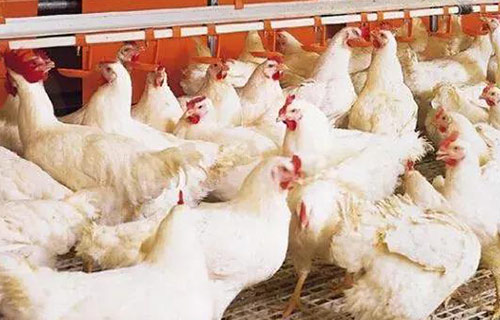First, the choice of feed
The feed should be reasonably proportioned according to the different growth stages of the chicken in poultry equipment for sale, such as energy, protein and other nutrients. The selection of each nutrient raw material in the formula should be screened out at the lowest cost, and the finished feed should be nutritionally comprehensive and affordable. For different age groups of chickens, different feeds should be chosen.
Second, strengthen feeding management
1. Less feeding. Excessively, the feed is contaminated by chicken manure, or the chicken feeds the feed out of the trough.
2. Correctly control the amount of feeding. Chickens of different ages are fed differently. During the brooding of laying hens, the flocks grow fast, and the daily feeding amount should be adjusted in time to make the chickens full and not wasted. During the breeding period, it is necessary to carry out restricted breeding. If the feed is not restricted, not only the feed is wasted, but also the chicken is over-fertilized and affects the egg production rate in the future.
3. Drinking water device. The use of the nipple type water diversion device not only saves a lot of water compared to the small trough water diversion device, but also effectively prevents the chicken from feeding the feed into the water tank, resulting in waste of feed and pollution of water sources.

Third, strengthen the preservation of feed
The storage of the feed must be in a dry, cool, well-ventilated place. The formulated feed should not be stored for too long to prevent loss of nutrients in the feed. In the humid and rainy season, the mold in the feed will multiply rapidly, which will easily cause the mold to deteriorate.
Fourth, timely rodent control
Rats and insects not only consume waste, but also consume oxygen, produce carbon dioxide and water, release heat and discharge excrement, leading to an increase in local temperature of the feed and an increase in humidity, causing aggravation of feed agglomeration. What is more serious is that mice also bite chickens, steal eggs, and spread diseases. Therefore, rodenticides or rodent control should be used to prevent rodents and waste.